From Ibadan Roots to National Impact: Prof. Funso Oluitan’s Journey Through Journalism, Activism, and Anti-Corruption by Temilade Aloko.
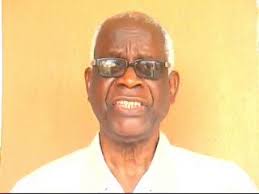
In a recent exclusive interview on Okebadan, Professor Emmanuel Funso Oluitan expressed his love for Ibadan, despite not being an indigene. Born, raised, and educated in Ibadan, he considers himself a native at heart. Originally from Efon Alaye in Ekiti State, with a mother from Ara in Osun State, Professor Oluitan attended Ebenezer African Primary School, Ekotedo, Ibadan, in 1944. Born on July 25, 1940, he began school early due to a unique age verification method used then, where children had to touch their opposite ear by reaching over their head.
He later proceeded to a modern secondary school, as his father could not afford a traditional secondary school. He spent three years there before securing a teaching position at a primary school in Gbongan. Despite financial constraints, Professor Oluitan received double promotions, completing his secondary education in four years instead of six.
Reminiscing about his childhood in Ibadan, he described it as a vibrant period filled with activities like renting bicycles, enjoying Egungun and Okebadan festivals, and engaging in the communal lifestyle of the time. He reflected on the loss of such community spirit in today’s society. He also highlighted Ibadan’s prominence as an entertainment hub, mentioning legendary performers like Ojoge Daniels, Lekan Olorode, Tunde Nightingale, Roy Chicago, Adeolu Akinsanya, and Baba Eto. He fondly recalled cinema venues like Skala Cinema and Odion, now replaced by modern establishments.
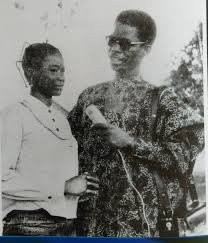
Professor Oluitan also shared his passion for journalism, inspired by his father, who frequently bought newspapers despite being uneducated. His interest led him to photojournalism, with his parents supporting him by buying a small camera. He began submitting stories and photos to the Nigerian Tribune, which were often published. This passion eventually landed him a job with Morning Post, where he covered elections in Northern Nigeria for figures like Sir Ahmadu Bello and Aminu Kano. However, health issues prompted him to return home, and his father encouraged him to quit journalism.
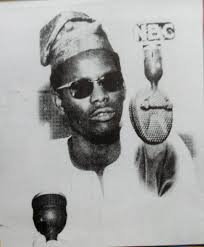
Upon returning to the South, he sought employment at Radio Nigeria, Ibadan. Initially offered a librarian role, he transitioned to news broadcasting when an opportunity arose. Professor Oluitan became renowned for his clear Yoruba translations, including interpreting Governor’s speeches during the Civil War and translating the Aburi Accord statement. He anchored popular programs like Atungbede and Records from the Racks and forged a significant relationship with the late Kunle Olasope, who played a pivotal role in his broadcasting career.
After his journalism career, Professor Oluitan became an anti-corruption crusader, inspired by his experiences with systemic corruption, including incidents involving NEPA officials. He joined the Nigerian League of Bribes Corner in 1957 and later founded the Association of Nigerians Against Corruption (ANAC) at Ahmadu Bello University to mobilize students and the public against corruption. He praised former President Olusegun Obasanjo for establishing the EFCC and ICPC.
A graduate of Bowie State College, Maryland, USA, and Indiana University, Bloomington, Professor Oluitan also worked as a customs officer, lecturer at Ahmadu Bello University, and with the NTA. His anti-corruption stance during the Babangida regime led to several harrowing experiences, including threats to his life, prompting his family’s relocation to the United States.
When Obasanjo returned as a democratically elected president, he invited Professor Oluitan back to Nigeria. Obasanjo offered him a choice of ministries to head, but Professor Oluitan preferred to focus on the ICPC, using his experience as a former American police officer to advocate for reforms in the Nigerian Police Force. Despite a year of delays due to corruption, he remained steadfast in his commitment.

As the author of many books, including From the Village to the Villa: Olusegun Aremu Okikiola Obasanjo, Professor Oluitan discussed his personal and professional relationship with Obasanjo, whom he regards as an incorruptible leader. He lauded Obasanjo’s zero tolerance for corruption and his governance as president.
In this episode of Okebadan, Professor Oluitan emphasized his belief in Obasanjo’s integrity and shared his rich experiences in journalism, academia, and activism.
Watch the full interview via this link.


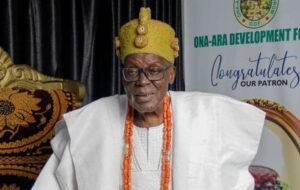
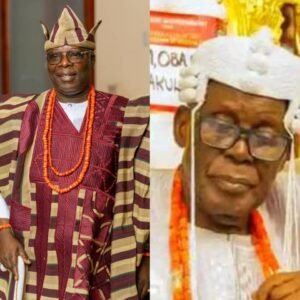



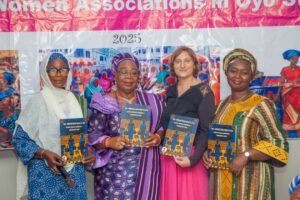

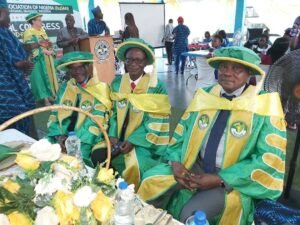
Thank you very much for for honored my Second Daddy but, we are OLUYITAN not Oluitan ,next time you will do something like this you have to ask for names very well, apart from the mistake of the name, you do a great job 😀